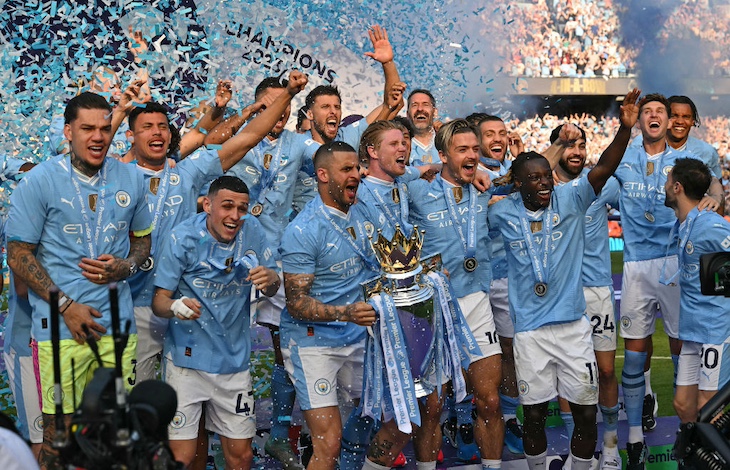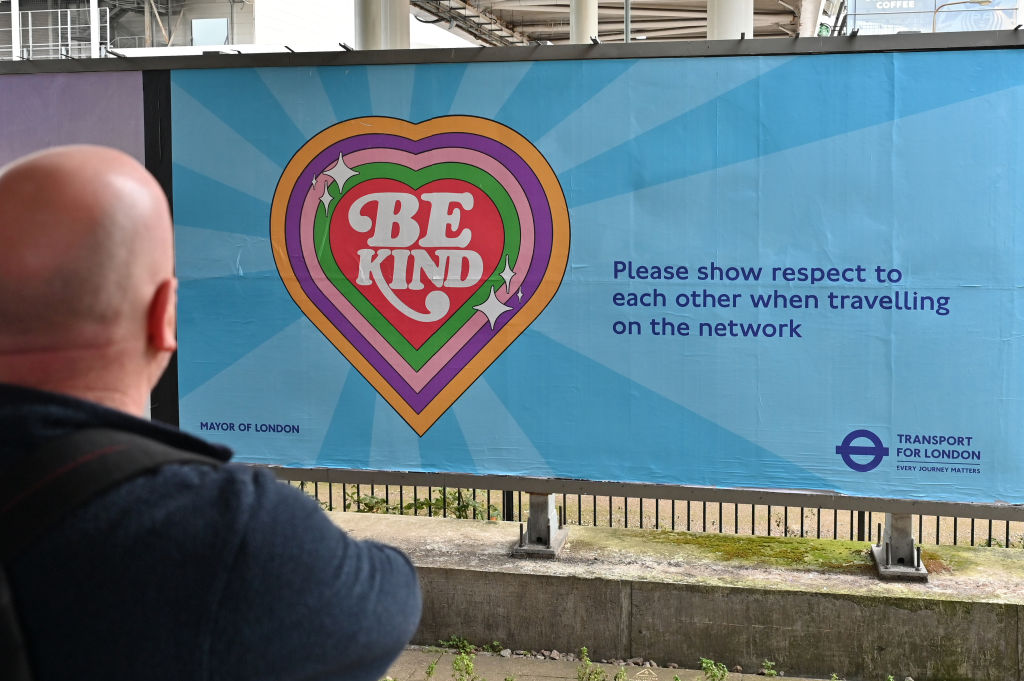‘The Premier League has the champions it deserves’, read the message from an old pal in May, after Manchester City’s footballers had won the title for the fourth year running.
Like many of England’s leading clubs, City are the playthings of foreign billionaires
We were both born within two miles of Maine Road, where ‘the City’ played until 2003. We used to attend matches at that grim yet strangely characterful home, standing in ‘the Kippax’, a cavernous terrace which ran the length of the field. In the days before football became fashionable many grounds were lavatorial.
City didn’t win anything in those days. Between a League Cup triumph in 1976 and 2011, when they won the FA Cup, the players had nothing to show for their increasingly desperate efforts except three relegations from the top tier. In 1998, as their neighbours at Old Trafford were soon to become top dogs in Europe, City were demoted to the old Third Division.
Now, as custodians of the Etihad Stadium, they are said to be the richest club in the world. Champions eight times in the past 13 seasons, they won the Champions’ League (the old European Cup) two seasons ago under the stewardship of Pep Guardiola, who has transformed English football.
Their style of play is too cold for some. Old-fashioned football people find it bloodless. Liverpool and Arsenal are more direct, and more attractive. But it’s impossible to challenge Guardiola’s record, funded by those millions gushing in since 2008 from Abu Dhabi.
Like many of England’s leading clubs, City are the playthings of foreign billionaires, who jet in now and then to see how the house is being run. The Premier League is an international confection that just happens to be based in England, and the clubs have long cased to be rooted in local soil.
This week City achieved their greatest triumph of all when they ‘defeated’ the Premier League, or so they claimed, in a legal stramash about ‘associated party transactions’. It’s complicated, and boils down to money: how it is raised, and how it is spent. How they’ll cheer City’s victory in the pubs of Miles Platting!
‘Spin me back down the years’, as the Jethro Tull song had it. In my case to this very week in 1967 when Francis Lee left Bolton Wanderers for Maine Road. Overnight I became a City fan, and it was a good time to clamber aboard. In his first three seasons my hero helped City win the League Championship, the FA Cup, the League Cup, and the European Cup Winners’ Cup.
It wasn’t always a more wholesome game in those days. The pitches were mudheaps by December, and some of the tackling amounted to licensed thuggery. But there was a clear link between the players and their clubs, and those clubs with the people who watched them. Lee’s starting wage at City, by the way, was £60 a week.
Last year, when City scaled the peak of European football, I wrote Lee a letter explaining that although I had drifted away from the club I was delighted for him, and for team-mates like Tony Book, the captain of that Sixties team, and Mike Summerbee. Those proud men had stuck with the club through thin and thin, and I knew how much it meant to them.
Lee replied, in an unsteady hand. A week later, on October 2, he died at the age of 79. The flame which had lit up my childhood and adolescence was extinguished. It happens to us all, of course, the passing of sportsmen who meant so much, but it was a blow. That man’s spirit was unconquerable.
What a grubby, amoral game it has become. But so long as ‘their’ team wins on a Saturday most fans care little. The bloated television coverage, with a cast of ex-pros dimmer than a TocH lamp, makes the romantics long for more innocent days.
There are pockets of resistance. Another friend, Colin Shindler, published a fine book in 1997 called Manchester United Ruined My Life, about growing up as a Jewish Blue. Col loved Mozart first, then Lancashire cricket and Manchester City. He hasn’t followed the club for years. There’s no connection.
These days John watches North Ferriby, a non-league club on the western fringe of Hull. They play games against Belper Town and Sherwood Colliery, names redolent of a past that has evaporated like an old pea-souper. As Michael Parkinson, who knew that world well, used to say: ‘You meet a better class of person down Memory Lane’.
Still, City have beaten the Premier League, and Pep’s men are flying high once more. But how many old fans will be celebrating?







Comments